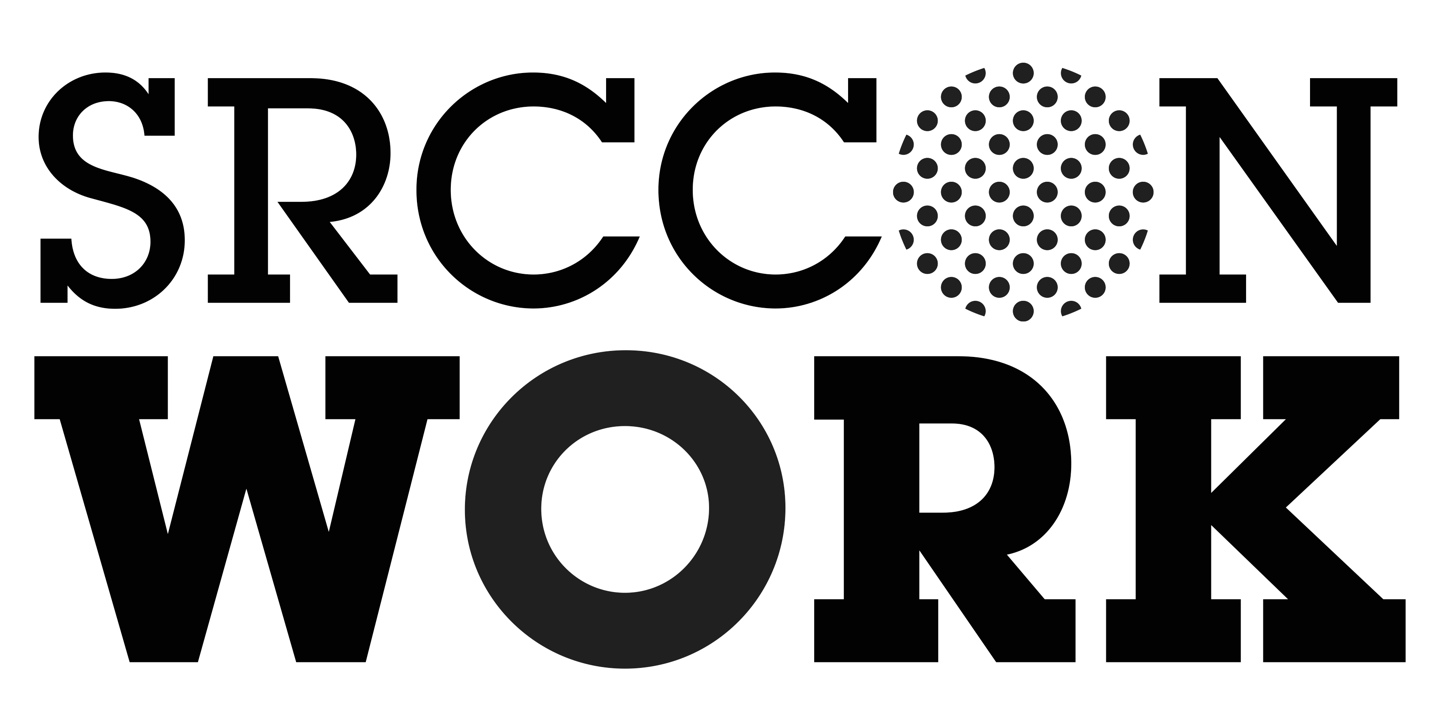
SRCCON:WORK is built around two days of talks, peer-led discussions, and hands-on workshops. The community members who step up to speak and facilitate these sessions make it all possible.
This year’s program!
After receiving nearly 50 amazing proposals, we’ve accepted sessions for our first SRCCON:WORK. We’ll publish a final schedule in November that includes these breakout sessions as well as a series of talks to introduce each of our conference themes.
Session Themes at SRCCON:WORK
SRCCON:WORK will explore how we as a community can make journalism more inclusive, representative, and responsive. Many of the biggest problems we face aren’t technical at all, so our program will focus on three big themes:
- Collaboration & teamwork: developing strategies to manage and mentor each other, and build happy, functional teams that communicate and coordinate across newsrooms.
- Hiring & career growth: bringing in diverse, skilled voices and making newsrooms a place they want to stay.
- Mental health & self-care: staying healthy—as individuals and as a community—so that even when the work gets hard, we don’t lose sight of the meaning we find in it.
We want SRCCON:WORK to take on teamwork, careers, and care through:
- discussions that help us learn from each other, and leave with heads full of ideas that can transform the way we work.
- sessions that make something to live on beyond this event, from shareable guidelines and best practices to lesson outlines that attendees can take back to their own newsrooms.
The sessions on our schedule are proposed and led by community members who want to lead conversations or develop new resources to share. Successful sessions often emerge from a single question or problem—if you’ve been struggling with just about any aspect of your work, you can bet others have dealt with it, too.
How Do Collaborative Sessions Work?
There are a lot of ways to think about sessions at SRCCON:WORK, but the main thing is to consider how it’s different than other conferences you may have attended. We’ll set the stage for each of our three themes with talks for the full audience, but the sessions at the core of our program are highly collaborative: an opportunity to compare notes, share skills, and learn from each other.
We want to make SRCCON:WORK a genuinely participatory event, and it’s hard to be part of a conversation or work with peers toward a goal in a session that’s mostly lecture. We look for pitches that include real interactivity, and we love creative formats that support learning. Outstanding sessions might include design exercises, art and games, small-group work, role playing, even field trips—and we’re always interested in new ideas.
We also encourage facilitators to think about session length and information density. We anticipate that sessions at SRCCON:WORK will last about an hour. Overprogramming a session with too many activities can make it hard to reach a satisfying goal—but a session that’s underdesigned can easily turn into a conversation between a handful of the loudest people. We’re happy to help facilitators figure out the right balance.
What Does a Session Facilitator Do?
Effective facilitation is about effort and preparation more than expertise. Our facilitators plan and guide sessions, ask great questions, share what they know, and learn from their peers. We find that the best sessions are often led by facilitators who:
- have a clear outcome in mind—what you want people to leave with,
- know what they can realistically cover in the time allotted,
- build a clear outline for the session, but deviate from it as needed,
- actively seek to run balanced, inclusive conversations, and
- make a few simple backup plans in case a session gets a larger or smaller audience than expected.
On the flip side, facilitators who have a harder time have usually tried to fit too much into too little time, or are underprepared for guiding an active conversation.
If that sounds like a lot of effort…it is! But it also means that people who are brand-new to the community—or to a topic—can make excellent facilitators if they’re willing to put in a little prep time. We provide group and one-on-one support to help facilitators prepare for their sessions, and we can help match you with a co-facilitator if you’d like to work with someone else.
Example Sessions from SRCCON
We asked some facilitators from previous SRCCONs to talk about their experiences:
- 3 Ways To Facilitate A Great Conference Session, by ProPublica’s Sisi Wei
- How We Facilitated A Huge, Participatory, Highly Charged SRCCON Session, by NPR’s Alyson Hurt
And here are a few more examples of sessions that have worked well in the past:
- True Life: I Work Remotely. This was an excellent peer-to-peer experience sharing session that allowed both remotees and the remote-curious to learn from each other.
- Let’s All Be Terrible at Things Together. This session forced people out of their comfort zones and into collaborating around weaknesses and fears.
- Every day I’m juggling: Managing managers, peer expectations, and your own project ideas. Talking to management, helping them to see things from your perspective, coaxing change out of newsrooms—it’s tough to go it alone. This session used the “experts in the room” to help level each other up.
- Mentorship at Scale: How The NYT Women in Tech group build a mentorship program for 250+ people in our free time. This session shared practical tips from leaders who helped create a program in their own newsroom, and ran condensed versions of goal-planning and peer-coaching workshops.
- Threat Modeling, But For Your Own Well-Being. This session used a guided series of questions to help participants identify their sources of anxiety, and then shared strategies for taking care of yourself emotionally.